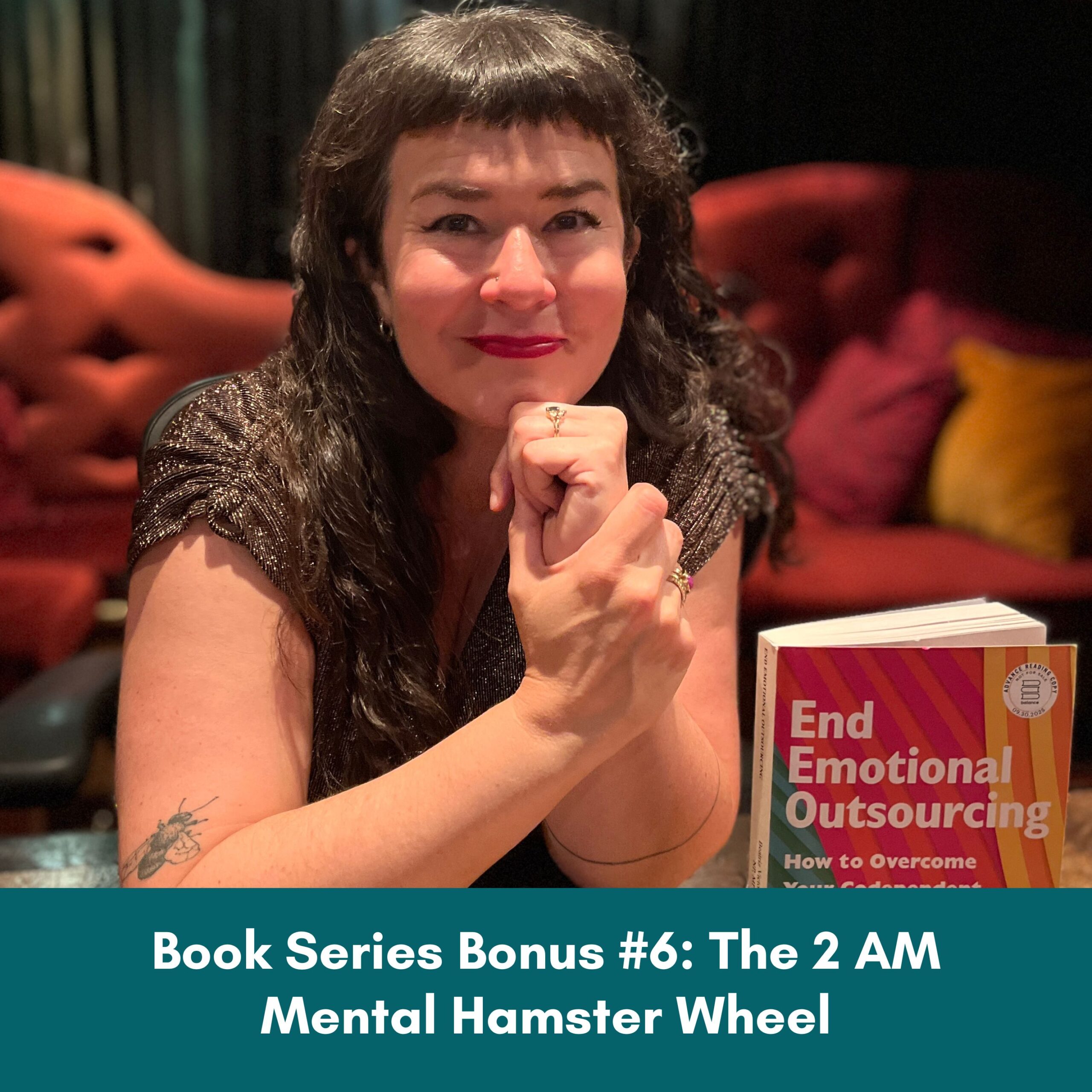Book Series Bonus #6: The 2 AM Mental Hamster Wheel
Do you replay conversations late at night, analyzing every word and micro expression until you feel like you are losing your mind? Do you wonder if you said too much, too little, too loud, or too quiet, and convince yourself someone must be mad at you? That is not you being “crazy.” That is rumination, an old survival strategy your nervous system learned long ago. And you do not have to stay stuck in it.

The 2AM Mental Hamster Wheel
You know the drill. You lie in bed wide awake, replaying that awkward pause or joke that did not land. Your brain becomes a bad detective, gathering “evidence” that somehow you are always guilty.
This is not logic. It is your nervous system on high alert. Your amygdala flags social interactions as dangerous, hijacking your prefrontal cortex. Suddenly, a weird silence feels like a saber toothed tiger. Your brain is trying to keep you safe from rejection, because once upon a time rejection meant exile. Exile meant death.
Why Overanalyzing Feels Impossible to Stop
Hypervigilance once kept you safe. If mom’s mood shifted, if dad raised his voice, if your teacher snapped, you adapted. You became a human mood detector, scanning for cues so you could adjust and avoid harm.
But now, instead of keeping you safe, that vigilance keeps you stuck. You are not present in real conversations because you are too busy scanning for threats. And science shows that chronic rumination does not make you better at social interactions, it makes you worse. You misinterpret neutral expressions as negative, tiny pauses as proof of rejection.
A Client Example
One of my clients spiraled for days because her friend texted “Sounds good” without her usual exclamation points. She convinced herself the friendship was over. In reality, her friend’s phone was autocorrecting strangely.
That is the hamster wheel. One ambiguous moment turns into a catastrophe in your brain. And you, my love, always end up the villain in your own story.
What Rumination Really Does
It rewires your brain
The more you ruminate, the stronger your threat detection circuits become while the parts of your brain that solve problems and regulate stress shrink.
It fuels emotional outsourcing
You make other people’s reactions the measure of your safety and worth.
It drains your body
Constant stress feeds anxiety, exhaustion, and even digestive and immune issues.
How to Step Off the Hamster Wheel
Step 1: Catch the Pattern
Notice when your brain starts investigating:
- “Did I say too much?”
- “Maybe they are mad at me.”
- “What if I ruined everything?”
Step 2: Listen to Your Body
Instead of replaying the scene, ask:
- Did my stomach drop?
- Did my shoulders tense?
- Did my chest tighten?
That is real data. Not drama.
Step 3: Validate Yourself
Try simple reminders:
- “My feelings are valid.”
- “It makes sense I feel this way.”
- “I do not need evidence to know I am hurt.”
Step 4: Support Your Nervous System
Gentle grounding, movement, breathwork, or orienting to the present help bring your body back from survival mode.
The Ripple Effect of Ending Rumination
When you stop renting your mental real estate to other people’s imagined reactions:
- You reclaim your peace at night.
- You build authentic confidence in relationships.
- You free your energy for living, not overthinking.
Your Permission Slip
Awkward moments will happen. People will not always laugh. Someone might look distracted. None of that determines your worth.
That is exactly why I wrote End Emotional Outsourcing. Inside, I teach you the science of rumination, plus somatic practices to help you stop spiraling and finally trust yourself again.

You do not need to analyze your way to safety.
You just get to trust you.
Tags: rumination, overthinking, emotional outsourcing, people pleasing, codependency recovery, nervous system healing, self trust, self validation, boundaries, perfectionism
